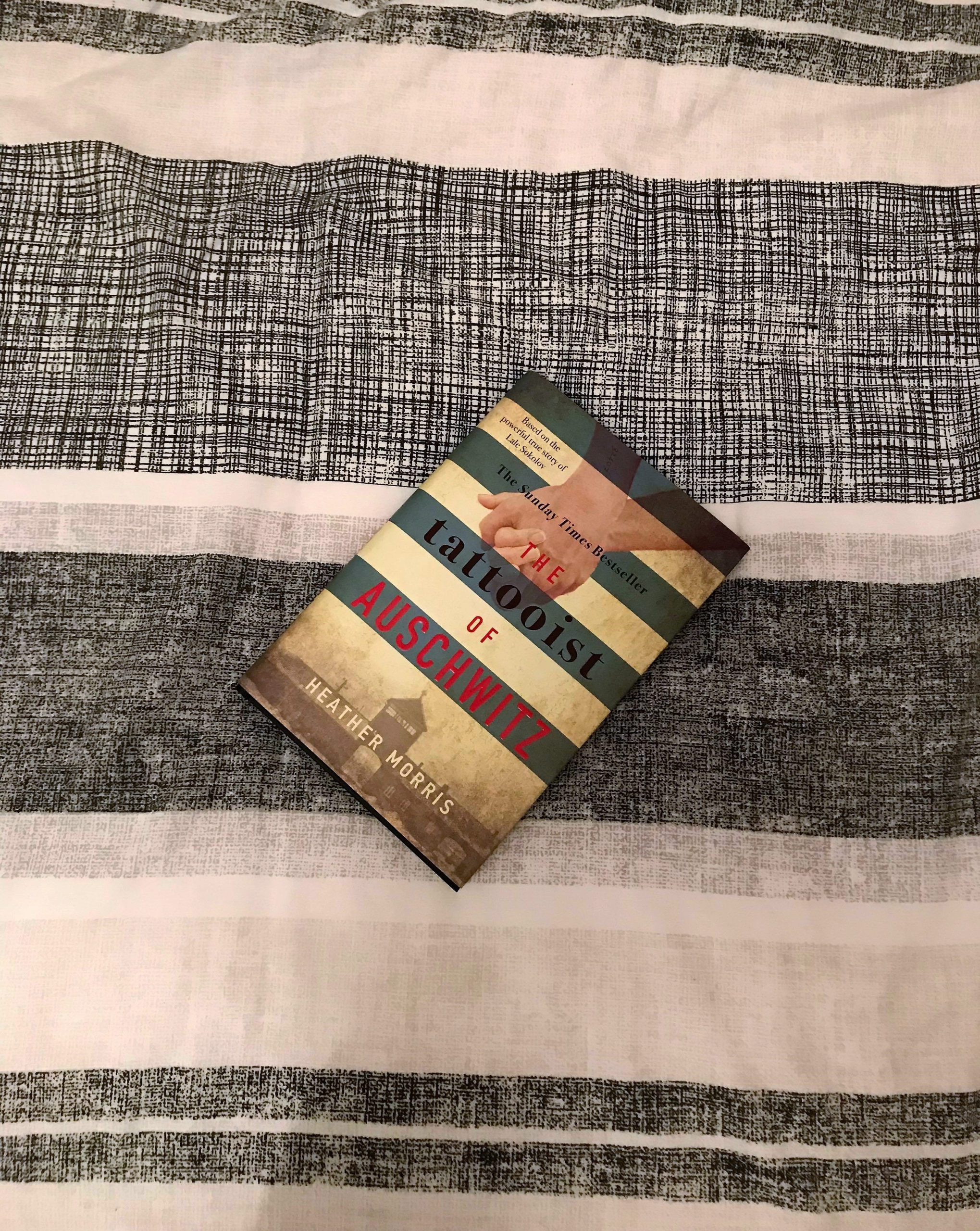If you read my last blog post, you’ll know all about my 2019 reading challenge that I’ve set myself: 20 – 25 books this year. So far I’m steaming ahead, having just finished reading Book 4 within the first month of 2019, ‘The Tattooist of Auschwitz’ by Heather Morris. I wasn’t expecting to write a review for this novel, but it moved me so much that I wanted to spread the word and recommend it to you all.
This is a novel based on the real-life experiences of an incredible gentleman who survived one of the darkest periods of humanity, Auschwitz. Although I have read novels based in such situations before (namely ‘The Storyteller’ by Jodi Picoult) and found them extremely emotive, knowing that many of the events relayed came from first person recollections of time in the infamous camp, their proximity to such dreadful deeds and hearing the dehumanising extent they had to go to in order to survive three years there is something which makes this novel so incredibly intense, moving and truly indescribable. The fact that the book ends with an Afterword provided by the gentleman’s son, as well as images of the couple brings home this unimaginable narrative.
I would recommend that everyone read this book, because it is so much more than a story: it’s a necessary reminder of this horrific period which showed the darkest, most vile side of humanity, bringing with it an intense sense of devastation that the world suffered so. It’s also an important reminder that history is about more than numbers, the millions who were thrown to death.
By telling Lale’s story, Morris reminds us that each person who was taken to this place was an individual who had family, friends and loved ones, hope and dreams and a unique life. To be able to read about even one individual’s story (even when swayed by a little poetic license) is unforgettable. Beyond this, the novel provides us with a reminder that hope and love can always be found and preserved, even in the most surprising of places. I think it is this underlying theme of Lale’s story, his determination to love and remain positive despite all he had seen, which makes hearing his experiences even more raw and moving beyond words. At the same time, I can appreciate that Morris takes care to ensure that the underlying love story does not diminish the horror, the trauma and the distress described; the balance she achieved is impressive.
Having finished the book, I allowed myself to read others’ reviews (I didn’t want to see any spoilers beforehand) and was really surprised at the backlash and negative reviews that some readers gave, claiming and nitpicking historical inaccuracies and chiding the book for not giving a 100% accurate representation of the running of the camp. Others complained that the writing style was clunky and of low quality. To read this book and make such remarks, I believe, is to show a fundamental lack of understanding of what the book aimed to do: Morris set out to write a novel based on a real-life experience. In order to do this, she had to walk the line between recounting and relaying the experiences of a survivor and presenting it in a novel format, filling in missing details and adding others to increase drama and readability without taking away from the real-life basis of the narrative: an incredibly complex task which I think she pulled off well. The novel was never intended to be a fact-by-fact textbook of the camp and thus should not be read as such – it should be appreciated as a complex piece of writing which sways the line between personal experience and novel.
Regardless of such comments, I found this novel thoroughly engaging, distressing and emotive and feel Morris did an amazing job of drawing the reader into the narrative which was, on occasion, hard to stomach and difficult to comprehend that these events were the reality of so many. I think it’s so important that books like this continue to be written and read and their messages passed down through the generations. Such harrowing narratives and recounts of these times allow us, as modern readers, to appreciate the lives we are able to lead by hearing about the traumatising hardships that others have endured. To give voice to such an individual’s unimaginable experience is a true gift that we shouldn’t take for granted; it is predominantly for this reason that I strongly encourage everyone to read ‘The Tattooist of Auschwitz’. An unforgettable book.
To keep up with the books I’ve read so far, check out my Instagram highlights.


Leave a Reply